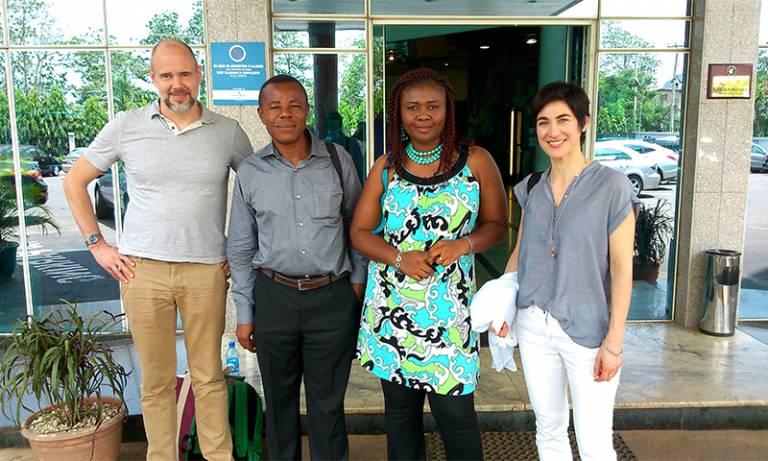Urbanisation Research Nigeria (URN)
Urbanisation Research Nigeria (URN) intended to create knowledge and evidence to inform future urban development policy and planning in Nigeria’s rapidly growing cities

20 September 2018
Urbanisation Research Nigeria (URN) was a UK Department for International Development (DFID) funded programme of urban research in Nigeria, delivered by a consortium led by ICF International, the Foundation for Development and Environmental Initiatives (FDI), Ibadan. The intention of the programme, which ran from 2013 -2018, was to create knowledge and evidence to inform future urban development policy and planning in Nigeria’s rapidly growing cities.
The DPU led on one of the four themes of the research programme, on the Well-being of Urban Citizens (this theme ran alongside the three other URN themes of: Urban Change Processes; Urban Economic Growth, Infrastructure and Livelihoods, and; Urban Land, Planning and Governance). Working on the theme of wellbeing and citizenship gave us the space to explore how the idea of well-being of city dwellers is understood specifically in Nigeria, and the citizenship spaces and practices that are employed by women and men in Nigerian cities to pursue their well-being aspirations.
To this end, DPU staff and our Nigerian partner organizations work on a number of specific research subprojects.
Andrea Rigon, with partners from Ahmadu Bello University in Zaria, conducted scoping research on the theme of well-being of urban citizens in five cities: Abuja, Kaduna, Zaria, Lagos and Ibadan. Naji Makarem contributed to the scoping research for the URN theme concerned with Urban Economic Growth, Infrastructure and Livelihoods.
A range of DPU staff were also involved in specific subprojects focused on: Industrial Development and Business-Civic Leadership in Nigeria (Naji Makarem); Economic Knowledge and the Urban Informal Economy (Colin Marx, Michael Walls and Le-Yin Zhang); Transport, Poverty and Well-being in Urban Nigeria (Julio D. Dávila, Caren Levy and Daniel Oviedo); Urban Infrastructure Projects and Displacement (Barbara Lipietz and Julian Walker); and; Pathways Out of Water Poverty (Pascale Hofmann).
- Urban Infrastructure Projects and Displacement in Nigeria
- Urban displacement is a problem at scale in Nigeria showing no sign of abating. Among the key drivers are urban infrastructure development programmes aimed at addressing Nigerian cities’ substantial infrastructure backlog along with increasing demand for urban land for immediate use and as investment/speculative asset.

In this context, from 2016-2017, Julian Walker and Barbara Lipietz collaborated with Nigerian colleagues based from the University of Nigeria, Nsukka in Enugu and the NGO Spaces for Change and Youth Development in Lagos to explore current practices of infrastructure-related displacement in Nigeria. Spurring this research was an exploration of how the need for urban infrastructure could be reconciled with social justice, and protect the interests and rights of low-income or marginalised urban residents in contemporary Nigeria.
The report is available for download here: http://urn.icfwebservices.com/Tags/Research%20Report
- Pathways out of Urban Water Poverty
- Despite strong policy statements, projects aimed at urban water supply and sanitation have largely failed to specifically target the most vulnerable cadre of society – the urban and peri-urban poor. Pascale Hofmann and Adriana Allen collaborated with the Department for Urban and Regional Planning at the University of Lagos (UNILAG) to explore the impacts of policy interventions on urban water poverty, and on identifying effective and sustainable pathways that strengthen access to water and sanitation in contexts where urbanisation is occurring in the absence of adequate provision of infrastructure. The project benefitted from DPU’s ongoing research on urban water poverty in Tanzania, particularly through the development and application of an innovative approach. The study aimed to contribute to improving future infrastructure planning and service provision and to allow for more effective targeting of potential beneficiaries. Findings are of value to planners, policy makers and individuals involved in various efforts to reduce urban water poverty in a range of organisations.The report is available for download here: http://urn.icfwebservices.com/Media/Default/Research%20Reports/urn_water_report_2017.pdf
 Close
Close

